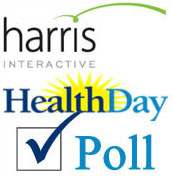
THURSDAY, Oct. 25 (HealthDay News) — Two years after it was signed into law, Americans’ views on the Affordable Care Act continue to track along party lines, even among those who say they’ve personally been affected by the controversial health-reform legislation, a new Harris Interactive/HealthDay poll finds.
According to the poll of more than 2,500 adults conducted earlier this month, 31 percent of adults surveyed said they want the entire law repealed, another 27 percent want to keep it in its entirety, and 22 percent want to keep only parts of it.
But as with a similar poll conducted a year ago, attitudes hewed closely to party lines: Most Republicans (63 percent) favor repeal while many Democrats (49 percent) want to keep all of the law or just tweak parts of it (19 percent).
And yet big majorities across the political spectrum said they want to retain parts of the Affordable Care Act (ACA). The law, one of the legislative centerpieces of President Barack Obama’s presidency, has been a frequent topic of debate during the pending election, with Republican challenger Mitt Romney pledging to repeal it.
For instance, 70 percent of those surveyed said they want to keep the rule that prevents insurers from denying health coverage based on pre-existing conditions — up from 64 percent in 2010, when the law was signed by Obama.
The “individual mandate,” on the other hand, remains a bitter source of contention, with 55 percent opposing it, roughly the same as two years ago. This provision requires Americans who don’t have insurance to buy it or face a penalty. The U.S. Supreme Court upheld the provision in a ruling handed down in June.
Harris Poll chairman Humphrey Taylor said the results aren’t surprising. “This survey indicates that many people can have different attitudes to the forest (the ‘big picture’) and to the trees (the ‘specifics’),” he said.
Although the ACA isn’t scheduled to take full effect until the end of 2014, some provisions are already in place. For instance, people under the age of 26 can remain on their parents’ health insurance plan; many seniors on Medicare now have lower drug costs due to a shrinking of the infamous “donut hole” reimbursement gap; and insurers are no longer allowed to exclude people from coverage because of pre-existing conditions.
But Americans seem unclear on which provisions have already been implemented, which haven’t, and how they personally might have been affected.
For example, when pollsters asked respondents about the possible effects the Affordable Care Act might have had on them — including some provisions that have been implemented and some that have not — 60 percent said they had already been impacted, whether the effect was real (based on provisions already in place) or imaginary.
Some of these perceived effects would be highly unlikely to have manifested at this point in time, including a tax increase as a result of the bill’s passage, which was noted by 19 percent of respondents, and a decline in health care quality, noted by 16 percent of respondents.
Some respondents said they or someone they know have already benefited from the Affordable Care Act: 23 percent cited the provision allowing young adults to gain coverage from a parent’s health plan; 14 percent cited the provision granting wider access to preventive services; 14 percent cited the new “pre-existing condition” rule; and 13 percent cited lower drug costs for seniors on Medicare.
Predictably, individual views on the law’s effects — for good or ill — also fell along party lines. Twenty-two percent of Democrats say the ACA has had an overall positive effect on their lives, compared to only 4 percent of Republicans. Similarly, 42 percent of Republicans deem the overall effect as negative, compared with 9 percent of Democrats.
“Republicans are much more likely to see negative effects of the ACA, including some effects (increased taxes or a decline in quality of care) which are almost certainly not linked to the Affordable Care Act,” Taylor said. “Democrats tend to see positive effects that [also] may be real or imagined.”
Although the poll numbers appear mixed, Ron Pollack, executive director of Families USA in Washington, D.C., believes that public attitudes will lean more toward the positive as 2014 approaches and more of the law’s key elements are enacted.
“As more and more people gain the experience of these very reforms having a positive impact in their lives and understand that the ACA was the vehicle by which those changes occurred, I think you’re going to see the overall numbers change,” Pollack said.
But John Goodman, president of the National Center for Policy Analysis in Dallas, believes the poll’s results may be skewed because the questions asked of respondents were oriented toward the benefits and not the costs.
“If insurance companies can’t deny people coverage because they’re sick, what if it raises your premiums? Then how do you feel about it?” he said. “People should understand that there is no free lunch. There are trade-offs.”
The online survey was conducted within the United States between Oct. 2-4 and involved 2,516 adults aged 18 and over.
More information
Learn more about the Affordable Care Act at HealthCare.gov.

